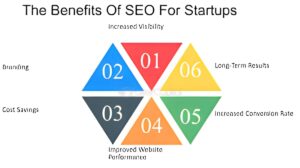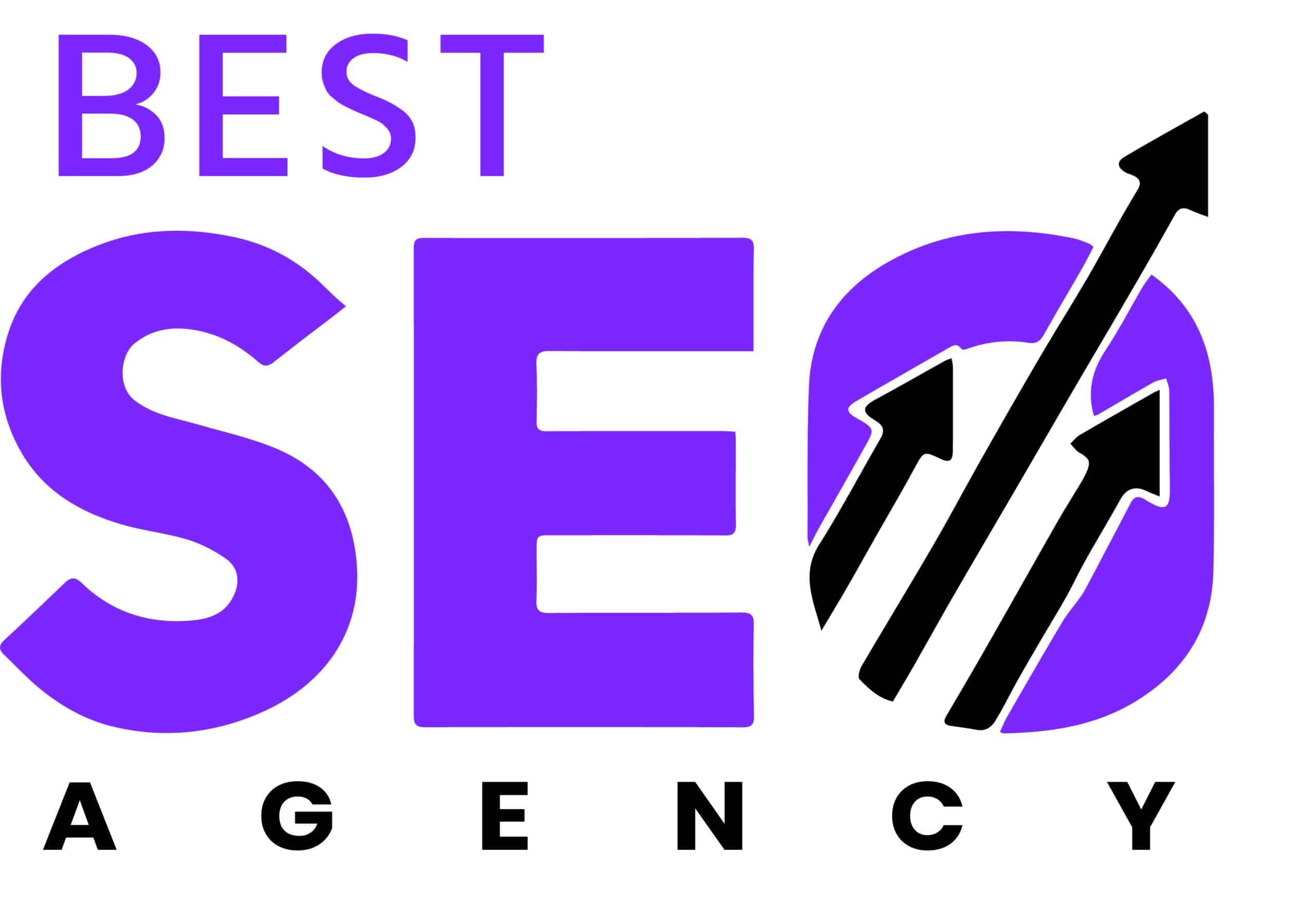
Startups often face tight budgets, limited resources, and high competition. Yet, with the right SEO strategies, even small businesses can compete with industry giants and grow their digital presence effectively. SEO (Search Engine Optimization) is one of the most cost-effective ways to increase organic traffic, generate leads, and build brand authority. This guide explores practical, budget-friendly SEO tactics for startups, including free tools, AI-assisted strategies, local SEO, and outsourcing options for maximum ROI.
Why SEO Matters for Startups

For startups, investing in SEO services is not just a marketing choice—it’s a strategic necessity. With limited budgets and fierce competition, a strong SEO strategy for small businesses can drive measurable results while reducing reliance on paid campaigns like Google Ads. Here’s why startups should prioritize SEO:
1. Boosts Visibility and Organic Traffic
A well-planned SEO strategy ensures your startup website ranks for relevant keywords, reaching potential customers when they are actively searching for products or services. By optimizing for search intent, startups can increase organic traffic, reduce dependency on paid advertising, and generate leads more cost-effectively.
2. Cost-Effective Marketing for Startups
Compared to paid campaigns, affordable SEO services offer long-term value. Even small budgets can be used effectively by focusing on technical SEO audits, content strategy, and keyword optimization. Using SEO tools like Google Search Console and Google Analytics allows startups to track performance without high SEO costs.
3. Builds Credibility and Brand Authority
High-ranking pages signal authority to search engines and build brand awareness among users. Startups that invest in digital PR, content marketing, and SEO techniques are more likely to gain trust from potential customers, increasing engagement and conversions.
4. Supports Long-Term Growth
Unlike paid ads, which stop driving traffic once the budget ends, SEO is a long-term investment. By consistently optimizing content, improving user experience, and monitoring keyword ranking, startups can maintain sustainable traffic and continue to grow organically over time.
5. Enables Local and International Reach
Local SEO helps startups attract nearby customers by optimizing their Google Business Profile, maps listings, and localized content. For startups targeting global audiences, international SEO strategies allow businesses to rank in multiple regions and languages, expanding reach and driving growth beyond borders.
Setting a Good SEO Budget
The SEO cost for startups depends on stage, industry, and competition. Even limited budgets can achieve results if focused strategically:
- Technical SEO audits and fixes to ensure a crawlable, fast website
- Content strategy and creation, optimized for search intent
- SEO tools — free options like Google Search Console or affordable alternatives
- Outsourcing complex tasks to a professional SEO agency or SEO expert
Startups can achieve SEO success with small business SEO efforts as low as $200–$500/month, scaling as growth allows.
Prioritizing SEO Goals by Startup Stage
Every startup has unique priorities depending on its growth stage. Understanding these stages helps allocate your SEO budget effectively and ensures that your SEO efforts drive measurable results.
1. Pre-Launch Startups
For startups in the pre-launch phase, the focus should be on foundational SEO:
- Website Redesign & UX Optimization – Build a mobile-first website with responsive design, fast loading times, and clear navigation to enhance user satisfaction and search engine rankings.
- Keyword Research & Content Strategy – Conduct keyword research to identify long-tail keywords and search intent. Plan a content strategy including blog posts, landing pages, and product descriptions to target potential customers from day one.
- SEO Audit & Setup – Perform a technical SEO audit to ensure the site is crawlable and indexable. Implement essential tools like Google Analytics, Google Search Console, and SEO plugins for continuous monitoring.
2. Early-Stage Startups
Startups that have launched their product or service should shift focus to optimization and on-page SEO:
- On-Page SEO Implementation – Optimize meta tags, headings, image alt texts, and internal linking to improve SEO performance.
- Technical SEO Audits – Regularly check for crawl errors, slow page speed, broken links, and schema markup issues using SEO tools.
- Landing Page Optimization – Enhance landing pages with interactive content, clear CTAs, and engaging design elements to improve user engagement and conversion rates.
3. Scaling Startups

For startups experiencing growth, the priority moves to expanding reach and long-term SEO strategies:
- Content Marketing Expansion – Increase blog content, case studies, and social media marketing efforts to drive traffic and brand awareness.
- Programmatic SEO & Keyword Ranking Tracking – Leverage AI tools and automation for scaling content updates, internal linking, and keyword ranking tracking.
- Backlink Building & Digital PR – Acquire high-quality backlinks to improve domain authority and search engine visibility. Collaborate with influencers and media outlets to strengthen digital presence.
- Local & International SEO – For startups targeting local markets, optimize Google Business Profile and maps listings. For global expansion, implement international SEO strategies to reach broader audiences.
By aligning SEO goals with startup stages, businesses can maximize ROI, improve organic traffic, and gradually build a sustainable online presence without overspending on unnecessary tactics.
What Is a Good SEO Budget for Startups?
For startups, budgeting for SEO is one of the most critical steps in building an effective digital marketing strategy. Unlike large enterprises, startups often have limited funds, making it essential to prioritize SEO efforts that provide the highest return on investment (ROI).
The ideal SEO budget depends on several factors:
- Startup Stage – Pre-launch startups may focus on technical SEO audits and foundational content, while scaling startups might allocate more to content marketing, link building, and local SEO.
- Industry Competition – Highly competitive niches may require a larger budget for keyword research, SEO tools, and ongoing optimization.
- Target Market – Startups targeting local SEO opportunities, such as Google Business Profile and maps ranking, may allocate funds differently compared to those pursuing international SEO.
How Startups Can Allocate Their SEO Budget

Even with a small budget, startups can make meaningful progress by distributing resources across key areas:
- Technical SEO Audits and Fixes
Investing in a website audit ensures that your site is optimized for search engines. Free or low-cost tools like Google Search Console, Google PageSpeed Insights, and Screaming Frog can identify SEO issues like crawl errors, slow loading pages, and broken links. - Content Creation and Optimization
High-quality content remains a cornerstone of SEO. Allocate a portion of your budget for creating blog posts, landing pages, product descriptions, and FAQs optimized for relevant keywords. Even DIY SEO content can be effective if guided by a strong content strategy. - Keyword Research Tools or Free Alternatives
While premium tools like Ahrefs or SEMrush provide comprehensive insights, startups can start with free keyword research tools such as Google Keyword Planner, Ubersuggest, or AnswerThePublic. These tools help identify high-value, long-tail keywords to target your niche audience. - Outsourcing High-Value Tasks to SEO Experts
Certain SEO tasks—like link building, technical SEO fixes, schema implementation, or SEO audit reporting—might require professional expertise. Hiring an SEO agency or freelance SEO expert ensures these tasks are handled correctly, saving time and improving results.
Keyword Research Without Expensive Tools
You don’t need pricey SEO tools to identify valuable keywords. Budget-friendly strategies include:
Google Keyword Planner – Free keyword suggestions and search volume insights.
Google Search Console – Analyze search queries and discover opportunities.
Ubersuggest Free Version – Identify keyword ideas and track competitor content.
AnswerThePublic – Generate content ideas based on questions users ask.
Pro Tip: Focus on long-tail keywords that are less competitive but highly relevant to your niche.
On-Page SEO Best Practices That Don’t Cost a Dime
Optimizing your website pages for search engines can be done without any investment:
Include target keywords in titles, meta descriptions, headings, and URLs .
Optimize images with alt text and reduced file size for faster page speed.
Ensure your website is mobile-friendly and responsive .
Use internal linking to connect related content and improve user navigation.
Structure content for readability using headings, bullet points, and short paragraphs.
Free Technical SEO Tools

Even startups with limited budgets can perform effective technical SEO audits using free tools. Leveraging these tools ensures your website is optimized for search engines, user experience, and conversions without incurring high SEO costs.
1. Google Search Console
Google Search Console is a must-have for every startup looking to monitor and improve its SEO performance. This free tool allows you to:
- Detect crawl errors and indexing issues that may prevent your pages from appearing in search results.
- Monitor keyword ranking and search impressions to track your SEO efforts.
- Submit sitemaps and individual URLs for faster indexing.
- Identify potential technical SEO issues, such as mobile usability errors or structured data problems.
By regularly reviewing Search Console reports, startups can ensure their website is optimized for local SEO, international SEO, and overall search visibility.
2. Google PageSpeed Insights
Website speed and performance are critical factors for user engagement and search engine ranking. Google PageSpeed Insights evaluates your site’s speed on both desktop and mobile, offering:
- Performance scores and recommendations for improvement.
- Suggestions for image optimization, caching, and code minification.
- Insights for mobile-first design optimization, crucial for startups targeting mobile users.
Faster-loading pages enhance user satisfaction, reduce bounce rates, and contribute to better SEO rankings.
3. Screaming Frog (Free Version)
Screaming Frog SEO Spider is a powerful tool that crawls your website to identify critical SEO issues. The free version allows you to:
- Find broken links (404 errors) that harm user experience and SEO.
- Detect duplicate content or missing meta titles and descriptions.
- Audit your site structure and internal linking for better navigation.
Using Screaming Frog helps startups maintain a healthy website structure, which is essential for search engine indexing and higher engagement.
4. Yoast SEO Plugin (for WordPress)
For startups using WordPress, Yoast SEO is an essential plugin that provides on-page SEO guidance. Key benefits include:
- Optimization of meta tags, headings, and keyword usage.
- Readability analysis to ensure content is user-friendly and engaging.
- Integration with Google Analytics to monitor traffic, user behavior, and conversion metrics.
Yoast SEO is particularly helpful for small businesses implementing a content strategy without hiring a full-time SEO expert.
5. Google Analytics
Google Analytics is indispensable for tracking user engagement and evaluating the effectiveness of your SEO campaigns. Startups can use it to:
- Monitor website traffic, page views, and visitor behavior.
- Track conversions, leads, and sales generated from organic search.
- Identify high-performing pages and opportunities for content optimization.
Combining Google Analytics with Google Search Console provides a complete picture of SEO performance, helping startups make data-driven decisions and improve search engine rankings.
These tools help startups maximize their SEO effort without high SEO cost.
Using AI Tools to Scale SEO Content

AI-powered tools can help startups create content faster and optimize for SEO without hiring large teams:
ChatGPT or Jasper.ai – Generate blog content, meta descriptions, and FAQs.
SurferSEO – Optimize content for target keywords and competitors’ strategies.
Frase.io – Identify content gaps and suggest improvements.
Pro Tip: Always review AI-generated content for accuracy, readability, and brand voice.
Avoiding Common Budget SEO Mistakes
Startups often waste time and money with ineffective SEO strategies. Avoid these pitfalls:
Targeting broad keywords with high competition.
Ignoring technical SEO issues like slow-loading pages or broken links.
Publishing content without a clear SEO structure.
Neglecting mobile optimization and user experience.
Relying solely on paid ads instead of balancing organic SEO efforts.
When and What to Outsource as Your SEO Grows
As your startup scales, outsourcing specific SEO tasks can save time and improve results:
Content creation – Hire writers for blogs, product pages, or case studies.
Backlink building – Professionals can help acquire high-quality backlinks.
Technical SEO fixes – Complex issues like schema markup, structured data, or site migrations.
SEO audits and reporting – Experts provide actionable insights using tools like Google Analytics and SEO templates.
Outsourcing allows your in-house team to focus on core business operations while ensuring SEO continues to drive growth.
FAQ: SEO for Startups
Q1: Why should startups invest in SEO? Investing in SEO helps startups increase visibility, drive organic traffic, build credibility, and generate leads cost-effectively. Proper SEO strategies allow startups to compete with larger companies without huge marketing budgets.
Q2: What is a realistic SEO budget for startups? A small startup can start with $200–$500/month, focusing on free tools, DIY content, and low-cost technical fixes. Budgets can scale with growth to include professional SEO services.
Q3: Can startups do keyword research without paid tools? Yes! Free tools like Google Keyword Planner, Search Console, Ubersuggest Free Version, and AnswerThePublic provide actionable keyword insights for startups with limited budgets.
Q4: How can AI help scale SEO content for startups? AI tools like ChatGPT, Jasper, and SurferSEO accelerate content creation, optimize for target keywords, and generate FAQs, saving time and resources.
Q5: When should startups outsource SEO tasks? Outsource complex tasks such as technical SEO, backlink building, or content marketing once internal resources are stretched. Outsourcing ensures quality execution and better ROI.
Q6: How long does it take to see results from startup SEO? Typically, startups can expect to see measurable results within 3–6 months , depending on competition, website optimization, and content frequency.
Conclusion
For startups in 2025, SEO is essential for growth, lead generation, and brand credibility. By focusing on budget-friendly strategies, leveraging free SEO tools, AI-powered content, and outsourcing when needed, startups can achieve sustainable SEO success.
Invest early, optimize wisely, and scale strategically — your startup’s online visibility depends on it.
Keywords Integrated Naturally: small business, local SEO, international SEO, SEO service, Google Business Profile, affordable SEO services, small business SEO, Google Ads, SEO tool, SEO agency, SEO effort, SEO pricing, content strategy, search intent, SEO success, digital PR, programmatic SEO, SEO techniques.
